'If I go home, I will be arrested': The dilemma of Indonesian HTS fighters in Syria
Indonesia President Prabowo Subianto is “supportive” of repatriation, but Indonesian combatants in Syria will face imprisonment and must undergo deradicalisation programmes if they return home.
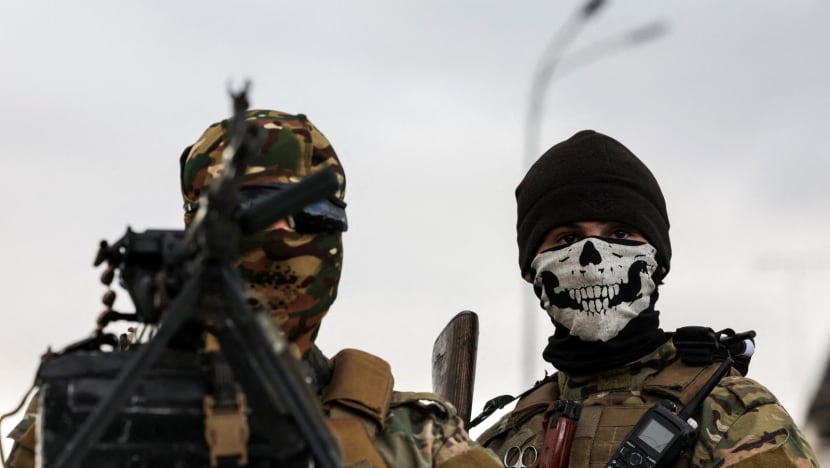
Khaled Brigade, a part of the Hayat Tahrir al-Sham (HTS) militant group, holds a military parade, after Syrian President Bashar al-Assad was ousted, in the capital Damascus on Dec 27, 2024. (File Photo: Reuters/Amr Abdallah Dalsh)

This audio is generated by an AI tool.
JAKARTA: With his back to the scorching morning sun, Abu Ilyas - not his real name - casts a dark silhouette during a video call with CNA from Jakarta.
From his mobile phone camera, several empty buildings can be seen on the shoreline. Standing on a concrete platform, the 38-year-old showed the surroundings of the beach in Tartus City, filled with large rocks, sand and gravel.
“No, it's not time for my face to be seen,” Ilyas said when CNA asked him to show his identity in an interview on Feb 1.
Ilyas said he had just arrived in Tartus, a coastal city in western Syria located 200km from where he lives in Idlib, to conduct patrols and weapons raids.
“There are still many former soldiers of the regime (Bashar al-Assad) hiding, and not all weapons have been retrieved,” he said.
Ilyas is an Indonesian citizen who joined Hayat Tahrir al-Sham (HTS), the rebel group that overthrew Syrian President Bashar al-Assad on Dec 8, 2024 and formed a transitional government in the country.
In the eyes of Indonesian law, he is considered a foreign terrorist fighter for joining a group labelled as a terrorist organisation by the United Nations Security Council, and a number of countries, including the United States and Canada.
It is believed that there are still hundreds of Indonesian citizens who are foreign fighters in Syria. If they return to their home country, they will be targeted for prosecution with the threat of imprisonment as observers say that they still pose a security threat to Indonesia.
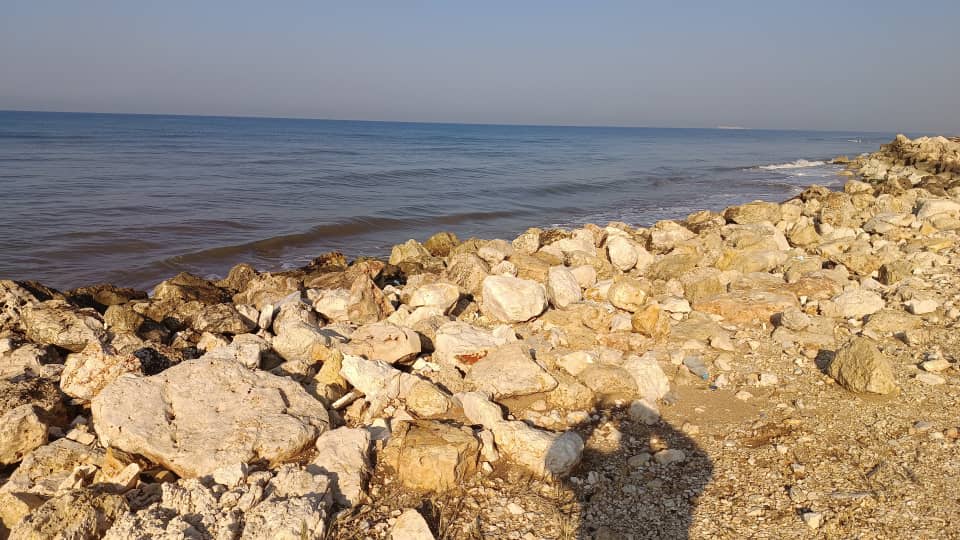
CNA traced the presence on Facebook of some of these Indonesian citizens who became foreign fighters and has been reaching out to them since early January. Some of them shared anecdotes from their time in the Syrian army, and the lives they’ve built since.
Targeted by law enforcement officials, many are reluctant to return home despite their longing for their families. Most of them are settled, some with partners and children, and hope to become Syrian citizens under the new government.
“I am an official member of HTS. One step away I can become a Syrian citizen,” a 34-year-old Indonesian in the city of Latakia using the pseudonym AF told CNA.
Since last year, the Indonesian government has been touting the idea of repatriating foreign fighters in Syria to face punishment in the country and undergo a long round of deradicalisation programmes before they can finally return to society.
The repatriation has yet to take place, and former president Joko “Jokowi” Widodo reportedly voiced his personal disapproval of the idea of repatriating Indonesian nationals who belonged to the Islamic State.
However, current president Prabowo Subianto might be more supportive of the idea and better infrastructure could now help smooth the path home, say experts.
The Indonesians in Syria face this prospect with conflicted feelings.
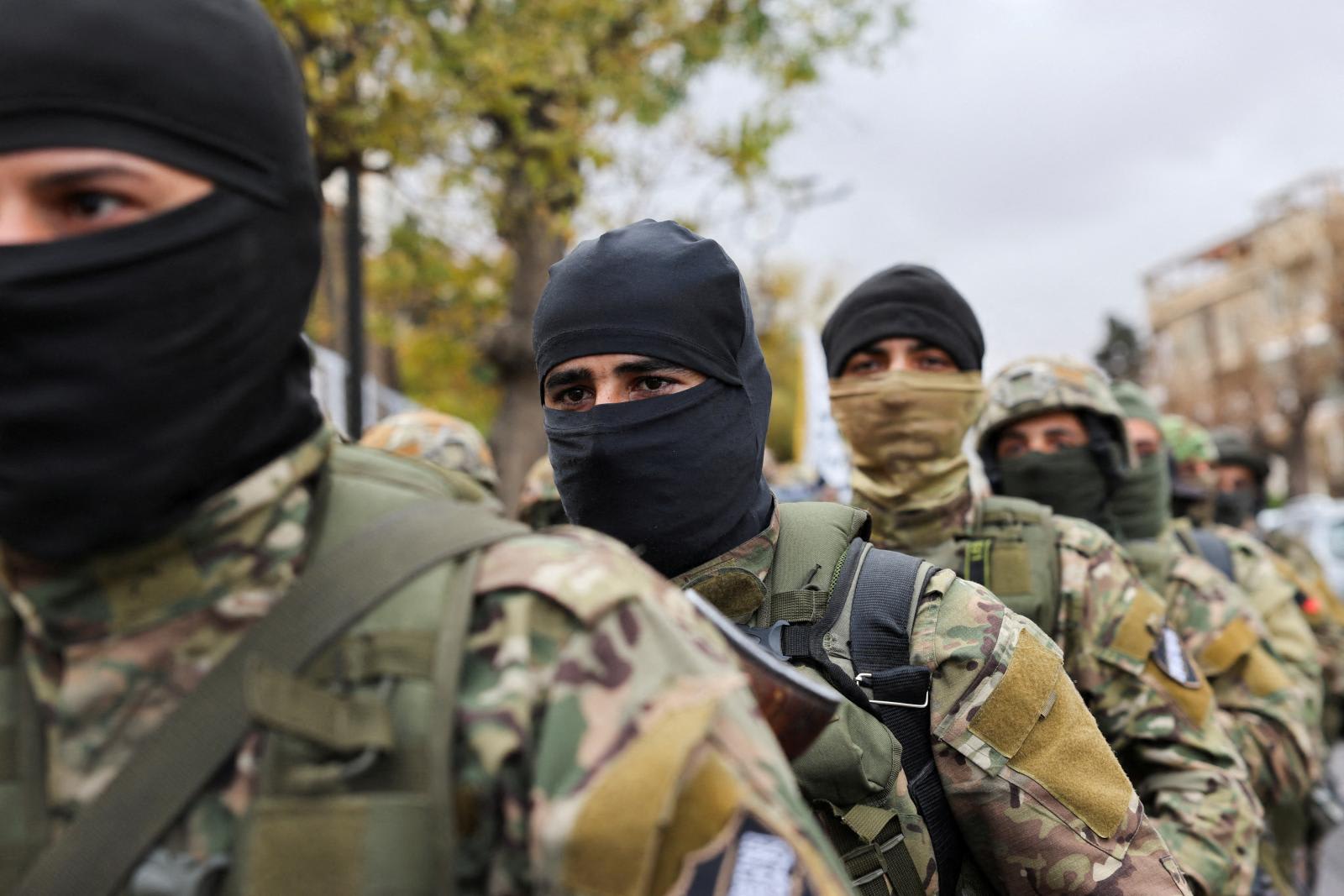
ACTIVE ON FACEBOOK
Ilyas told CNA he was assigned to go to Tartus in a majmuah musyat or small infantry group.
“I was the deputy commander of the majmuah. It was a small group, consisting of eight people,” said Ilyas.
After the regime collapsed, Assad's soldiers were disarmed and required to report regularly. However, said Ilyas, there are some former soldiers who still fight here and there, especially in areas bordering Lebanon, including Tartus.
“The infrastructure in this place (Tartus) used to be complete, but the soldiers took everything, such as transmitters and copper,” he said, with a slightly disjointed voice due to poor phone signal.
The Sulawesi native said he went to Syria in 2013 and joined the Jabhat al-Nusra rebel group, an Al-Qaeda affiliated terrorist organisation and the forerunner of HTS today.
Since then, he has often taken up arms and been involved in various battles, fighting alongside HTS. He admitted that he almost died several times in close combat.
Twelve years later, Ilyas has now settled in Idlib, married a Syrian woman and has three children.
“We have lived harmoniously here, we are considered part of the family,” he said.
Ali Husni, an Indonesian volunteer aid provider who was also labelled a foreign fighter, explained that many Indonesians in HTS are on duty like Ilyas.
Usually, they are deployed to small towns to search for weapons and landmines that are still left by Assad's army.
“They are assigned to various tasks, some are squad commanders, mortar launchers, and snipers,” said Ali, 45, who was also in Tartus to distribute bread to the locals.
“As far as I know, there are less than 100 Indonesians in the city of Idlib where I live,” he said, adding that from there, they could be deployed to anywhere in the country.
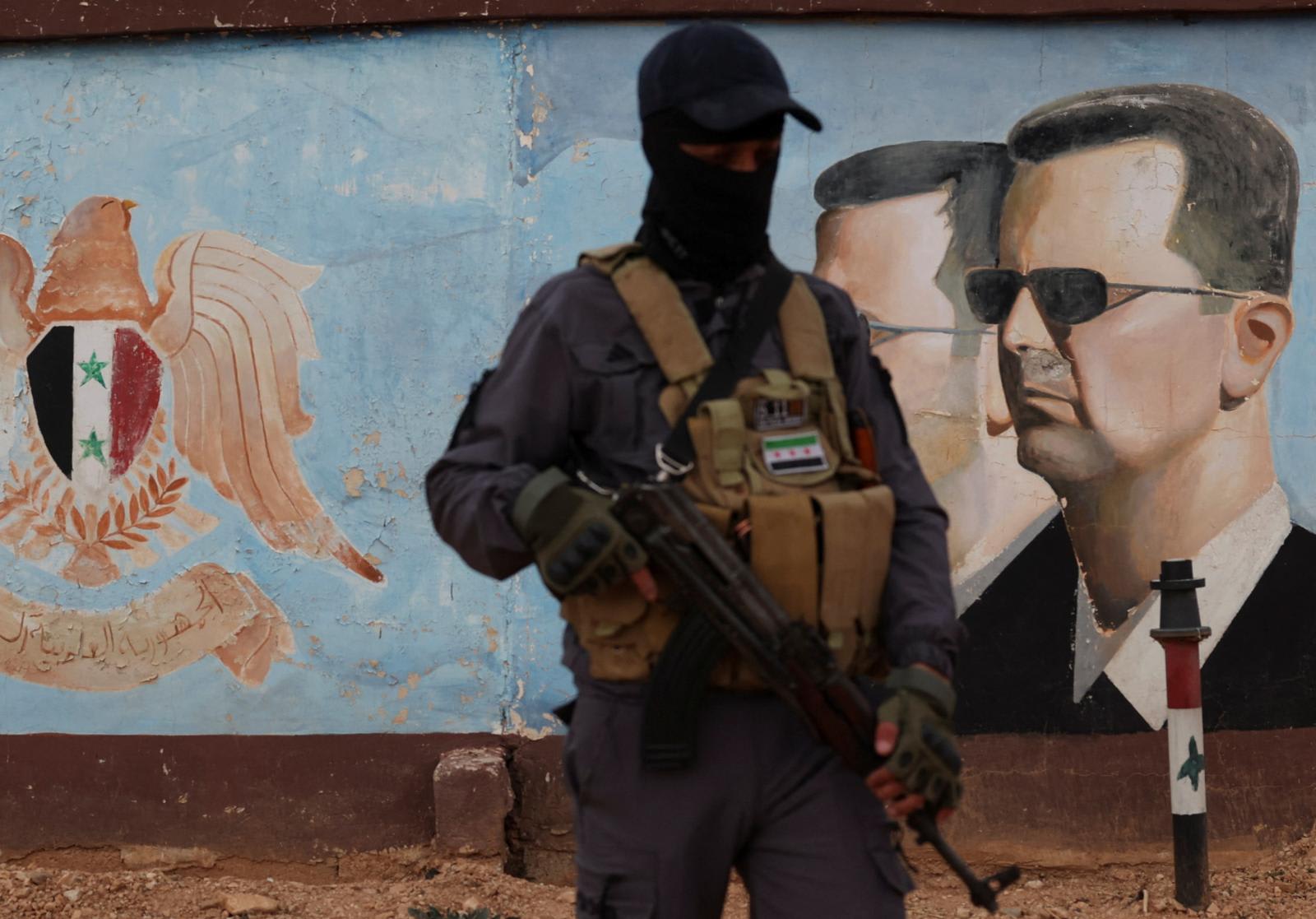
Adlini Ilma Ghaisany Sjah, Associate Research Fellow with the International Centre for Political Violence and Terrorism Research at the S. Rajaratnam School of International Studies (RSIS) in Singapore, said that based on data from Indonesia’s National Counterterrorism Agency (BNPT) in 2021, there were around 1,000 Indonesians who went to Syria and became foreign fighters.
“And 800 were still in the conflict area at the time while 100 others have died and 50 have returned. Not all of these individuals may be active fighters,” Adlini told CNA.
CNA has tried to confirm this with BNPT but has yet to receive a response.
“Some Indonesian foreign fighters have trained with Ahrar al Sham, the Free Syrian Army, and Suquor al-Izz brigades in Syria. There is high fluidity of rebel groups in Syria, and these three groups have at times joined under the HTS umbrella, such as during the Damascus operation,” Adlini said, referring to the December assault on the Syrian capital that toppled Assad.
Among the Indonesians who joined HTS in Syria were 16 members of Jemaah Islamiyah (JI), a terrorist group that disbanded in July last year.
Arif Siswanto, former chairman of JI's lajnah (Shuro Council) team, was quoted by local media platform SINDOnews in December as saying that the 16 Indonesians were JI training centre graduates.
JI training centres were successfully dismantled by the National Police's Special Detachment 88 (Densus 88) Antiterror team in 2020 in various locations in Central Java. In these training centres, they were taught to use firearms and assemble explosives in preparation for joining Jabhat al-Nusra.
Muhammad Makmun Rasyid, a terrorism expert from the Indonesian Ulema Council's Countering Extremism and Terrorism Agency (BPET MUI), said that HTS does “teach its affiliates or small clans of recruits to be active in the digital world”.
One of those active on Facebook is AF, who has more than 6,000 followers. On his social media account, he shares political developments in Syria and updates from his daily life in the country, including his activities with his children.
He told CNA that Islamic State members currently in refugee camps also have Facebook accounts. But AF, who has been in Syria since 2016, insisted that those who joined HTS have a different ideology and way of life from the Islamic State.
“Even we are seen as infidels by them,” AF said of the Islamic State group which considers people with different ideologies as infidels.
The East Java native said he was motivated to go to Syria when he was on an internship programme in Japan. After returning to Indonesia, he decided to go to Syria by himself, entering through the Turkish route.
“I wanted to help the Muslims in Syria to get rid of the dictator who has been in power for 54 years and slaughtered the people,” AF said about the Assad dynasty's leadership which came to power in the 1970s.
When he first entered Syria, AF worked as an aid worker under the banner of a charity organisation. The organisation later dissolved, and he joined HTS.
BNPT said in a publication in 2024 that the humanitarian aid path was one of the ways for foreign fighters to become combatants in Syria. Some Indonesians are also accused of collecting donations from Indonesians to fund terror organisations in Syria.
“Indonesian charities have contributed to Huras as-Din, a pro-AQ (Al Qaeda) splinter from HTS, while Hizbut Tahrir Indonesia supporters are more supportive of the Hizbut Tahrir group in Syria,” said Adlini.
Ali Husni, who often shares his activities on Facebook and has more than 1,600 followers, said that he had been targeted by the authorities. His treasurer in Indonesia, he said, had even been arrested by the police.
But he denied the allegations of using donated funds for terror organisations.
“Several times the (Indonesian) police interrogated me (over the phone). We denied it,” said Ali, who claimed to have raised up to 2 billion rupiah per year (US$122,285), some of which was used to build a bakery and the “Greater Indonesia Refugee Camp” in Idlib which houses around 100 refugees from 37 families.
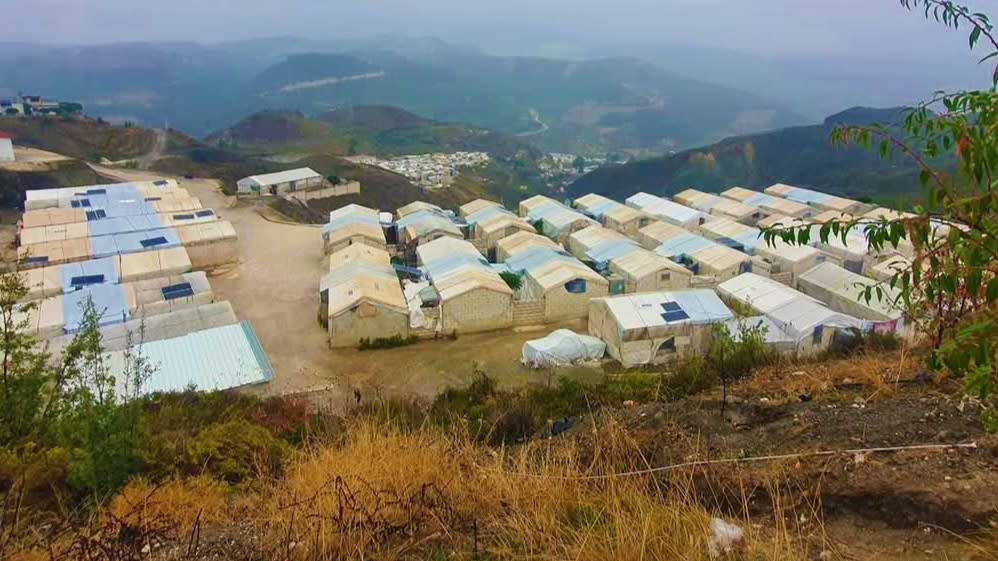
INDONESIA YET TO RECOGNISE THE NEW GOVERNMENT OF SYRIA
After Assad fled to Russia, the Syrian government was held by HTS and formed a transitional government under the leadership of interim President Ahmed Hussein al-Sharaa, aka Abu Mohammad al-Julani, a former high-ranking HTS commander.
Currently, Sharaa is trying to garner international recognition by stating that he will eradicate terror groups in Syria and begin the process of forming a new, inclusive government and holding elections in four years.
Both Saudi Arabia and Türkiye support the transitional government and efforts to eradicate terrorism in Syria.
The Indonesian government has yet to express its stance on the new Syrian government. Indonesian Foreign Ministry spokesman Rolliansyah Soemirat said it is still “intensively monitoring developments in Syria, especially the issue of protection of Indonesian citizens”.
“For other matters related to political developments in Syria, the government will continue to coordinate and dialogue with various key countries through multilateral forums, especially the UN and OIC (Organisation of Islamic Cooperation),” Rolliansyah told CNA.
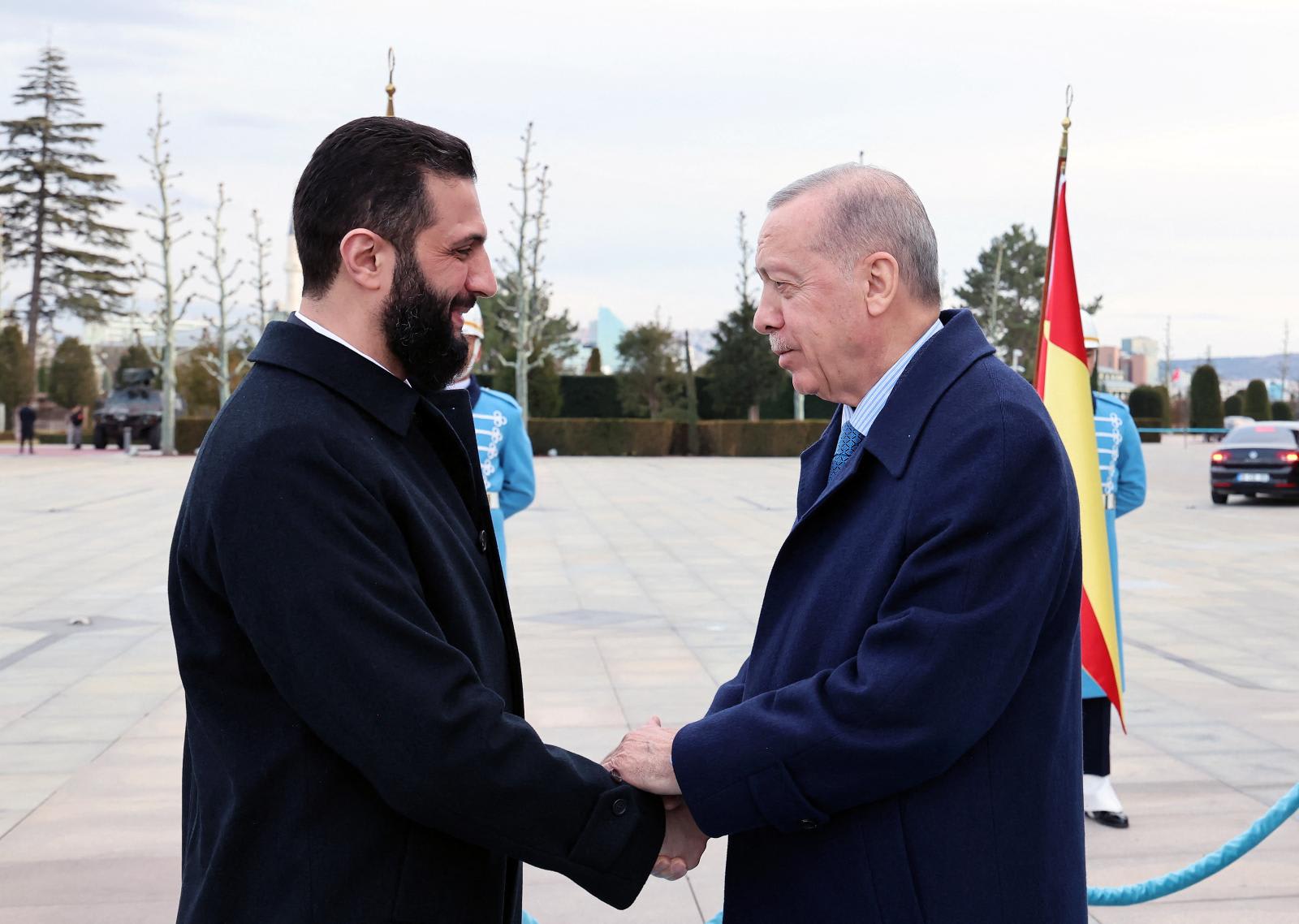
Teuku Rezasyah, a lecturer in international relations at Padjadjaran University and President University, said Indonesia is being cautious on this matter.
“Because the end is still unclear, whether the (Syrian) government is legitimate or not. If the Indonesian government recognises it and (Syria) becomes unstable, then this sets a bad precedent that Indonesia's decision was made in haste,” Teuku told CNA.
After HTS took control of the government, its combatants, including Indonesian citizens, were appointed to the Syrian national army and received official salaries from the government. Some Chinese foreign fighters of Uighur, Jordanian and Turkish ethnicity even received high ranks in the Syrian military.
“That's a secret, but (the salary) is enough,” AF said when asked how much salary he received from the Syrian government.
AF said that with HTS becoming the government and being appointed as the official state army, the terrorist label should no longer be attached to him. According to him, HTS troops are now considered heroes in Syria because they succeeded in overthrowing the Assad regime.
Ardi Putra Prasetya, a criminologist from the University of Indonesia, said that although HTS is now in power in Syria, the Indonesian foreign fighters are still considered to be violating Indonesian law because they joined when HTS was not yet in government.
Under Indonesia's Law No. 5/2018 on eradicating criminal acts of terrorism, such foreign fighters can be sentenced to a jail term of between four and 15 years.
“In terms of legal offence, they have committed an offence so they are eligible to be tried when they return home. They also participated in paramilitary training (abroad), which is also a violation of the law,” Ardi said.
CNA has sent an official letter to Densus 88 (Special Detachment 88) anti-terror squad of the Indonesian Police to request more information about Indonesian foreign fighters in Syria but has yet to receive a response.
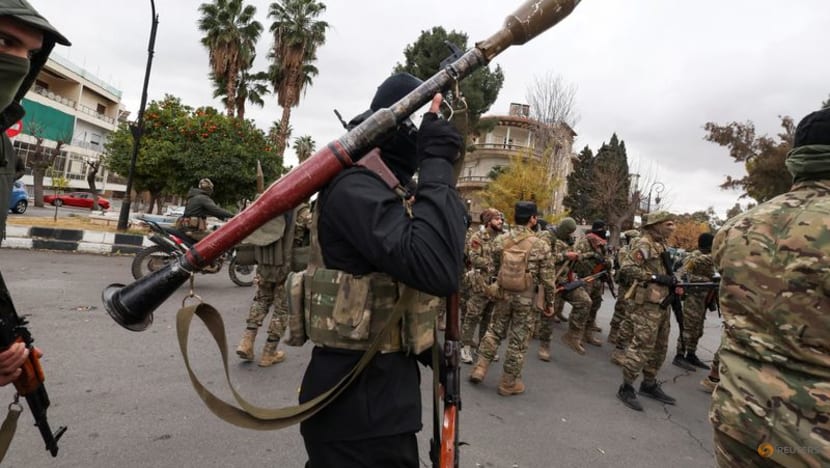
REPATRIATION OF FOREIGN FIGHTERS FROM SYRIA
Indonesia's BNPT in May last year proposed the repatriation of Indonesian foreign fighters in Syria to Jokowi.
This does not just include those who joined HTS. Some Indonesians also joined the Islamic State group in Syria.
The latest data from BNPT states that there are 375 ex-Islamic State Indonesians, mostly women and children, currently in the Al Hawl and Roj camps run by Kurdish forces in northern Syria, bordering Iraq.
They were left stranded after the Islamic State was decimated in 2019 with its leader Abu Bakr al-Baghdadi killed in an attack by US forces.
BNPT Deputy for Enforcement and Capacity Building Inspector General Ibnu Suhaendra was quoted by news agency Antara as saying in May 2024 that Indonesia was one of the few countries that had not repatriated its foreign fighter-affiliated citizens from Syria.
Earlier in 2023, the government, through Decree of the Coordinating Minister for Political, Legal and Security Affairs Number 90, issued an order to establish a cross-ministerial and institutional task force to handle foreign fighter-associated Indonesians.
In BNPT's 2024 publication, it is stated that the repatriation process will involve three stages: Pre-border, at the border and post-border.
The pre-border stage is the process of identification and data verification. The border stage is the repatriation process after an official decision from the government.
Meanwhile, the post-border stage is personal identification for law enforcement and assessing the radicalism level of individuals for the deradicalisation and reintegration process.
Jokowi in 2020 firmly refused to repatriate the foreign fighters to Indonesia. Among the debates that arose at that time was the fact that, apart from being able to spread radicalism in the country, the foreign fighters were also considered no longer Indonesian citizens because they joined a foreign army.
However, according to Yusril Ihza Mahendra, Indonesia's Coordinating Minister for Law, Human Rights, Immigration and Corrections, the foreign fighters are still Indonesian citizens because they “have not submitted an application for loss of citizenship” as stipulated in the law.
“Thus, Indonesian citizens who are members of HTS have not lost the citizenship of the Republic of Indonesia, their citizenship status is still Indonesian,” Yusril said, when contacted by CNA.
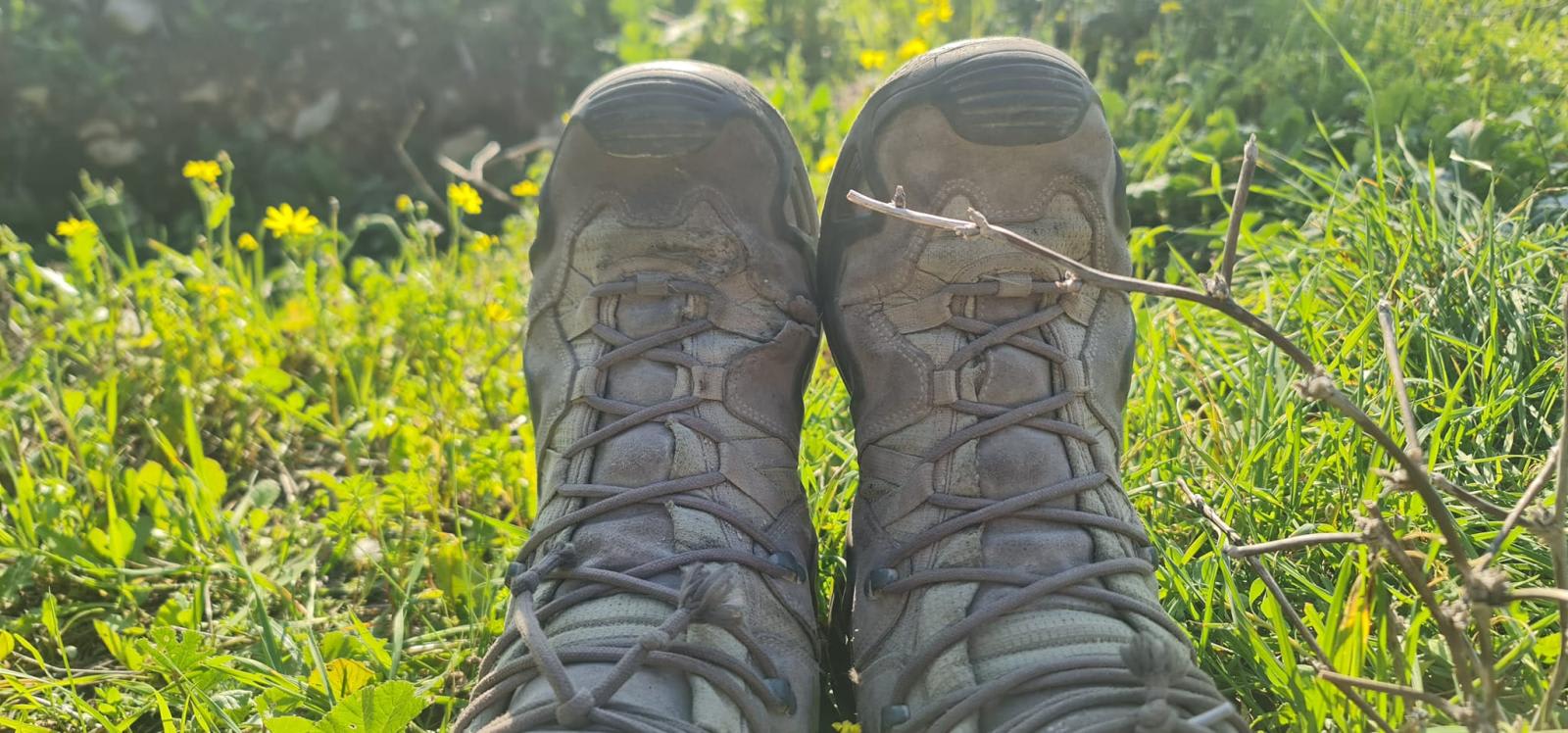
As long as they are still Indonesian citizens, they are entitled to protection from the state, said Director of Protection of Indonesian Citizens at the Indonesian Ministry of Foreign Affairs Judha Nugraha.
“Every Indonesian citizen abroad will be given consular assistance by the Indonesian Representative. If they violate Indonesian law, they still have to be held accountable,” Judha told CNA.
Although a request for repatriation and the formation of a task force have been submitted, until now the repatriation of foreign fighter-affiliated Indonesians from Syria has not yet been carried out by the government.
Makmun from BPET MUI, who is knowledgeable about the repatriation plan, said that initially, the government would repatriate the foreign fighters in 2024.
However, due to the fall of the Assad regime and HTS controlling the government, the Indonesian government decided to restrategise.
“The Indonesian Embassy in Damascus, the Ministry of Foreign Affairs and related parties are still determining their political-diplomatic stance on Syria,” Makmun said.
“This is a factor that causes the delay in repatriation. In addition to budget constraints after Prabowo's (budget austerity) instruction.”
Although repatriation has yet to take place, RSIS's Adlini noted a change in the attitude of the current Indonesian government under President Prabowo Subianto that is more open to repatriation.
Several government institutions have proposed the repatriation of troubled Indonesians from various countries, including Riduan Isamuddin, known as Hambali, a suspect in the 2002 Bali bombings who is now held by the United States in Guantanamo Prison.
At the same time, Adlini said, infrastructure and inter-agency cooperation in Indonesia are now also better prepared to welcome foreign fighters back to the country.
“In the interest of Indonesia's security for both now and the future, it is better to repatriate these individuals responsibly,” he said.
“If not repatriated, Indonesian foreign fighters may become further entrenched in the terror networks abroad, where they could spread propaganda and recruit more Indonesians into such networks, and will be much harder to monitor and control.”
SECURITY THREAT, DERADICALISATION IS THE ANSWER
According to Noor Huda Ismail, a terrorism expert and visiting fellow at RSIS, even though the foreign fighters will later serve prison sentences, they are still a threat in Indonesia, especially those who have been directly involved in combat.
“If we look at the leadership in Jemaah Islamiyah before they disbanded, the leaders were usually people who had been involved in fighting. They have a special charisma that can influence others,” Huda said.
A 2020 United Nations Development Program (UNDP) report titled “Homecoming: The Return of Foreign Terrorist Fighters in South-East Asia” states that foreign fighters who returned from the Soviet-Afghanistan war in the 1980s have generated violent extremist movements around the world, including JI in Malaysia and Indonesia.
The foreign fighters involved in fighting in Syria, the UNDP report said, have a variety of warfare skills, such as launching propaganda, assembling bombs or operating drones. Many of them also witnessed acts of terror or committed war crimes in Syria.
“Southeast Asian governments are concerned that returnees may galvanise extremism at home and that the networks they have formed in Iraq and Syria may strengthen regional and international terror links,” the report read.
Makmun from BPET MUI said that the best way for these foreign fighters to let go of extreme ideology and not return to terrorist networks is through a rehabilitation process.
“Effective prevention, monitoring, and deradicalisation programmes are key in this rehabilitation process,” Makmun said.
Ibnu Suhaendra of BNPT said in May last year that it had collaborated with the Ministry of Social Affairs to set up Sentra Handayani in Cipayung, East Jakarta, as the location for the deradicalisation program of foreign fighters from Syria.
Sentra Handayani is a social rehabilitation centre managed by the Indonesian Ministry of Social Affairs.
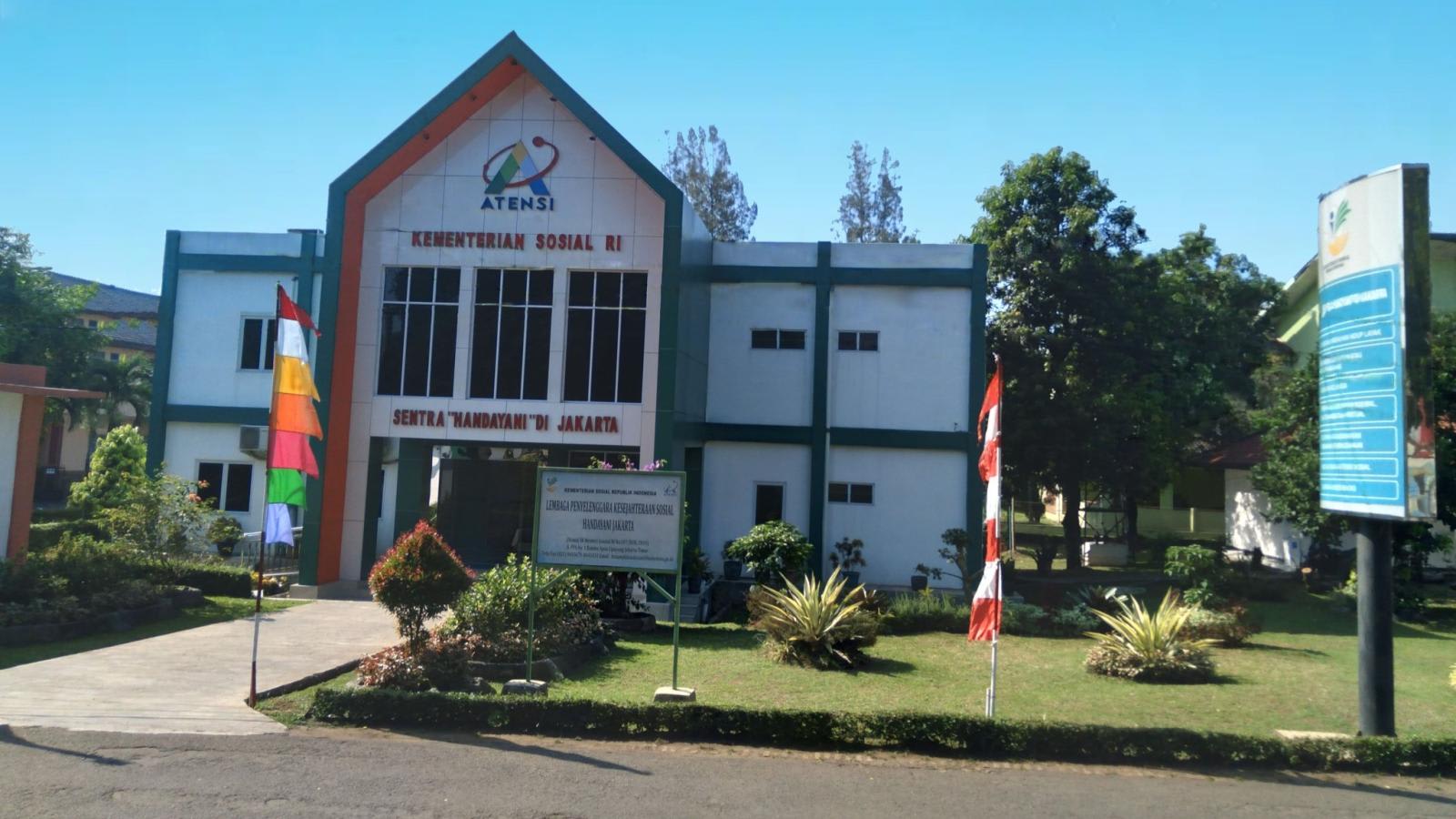
Ardi, the criminologist from the University of Indonesia, said that the deradicalisation process lasts for six months, and can be extended by another six months if needed. Then after one year, BNPT will conduct an evaluation to determine whether further therapy is needed.
Ardi said that the most difficult deradicalisation to carry out is for those who have been involved in terror groups for a long time, including foreign fighters who have been in Syria for dozens of years.
“Because their belief system already strongly believes in something different from the prevailing norms and values, and the culture has crystallised. To change that is quite difficult,” said Ardi, who is directly involved in BNPT's deradicalisation program.
In the deradicalisation process, identification will first be carried out as to why someone has become radicalised.
The reasons may not only be due to a misunderstanding of religious teachings, said Ardi, adding that there are also those who become foreign fighters in Syria because they want to get financial gain, seek sensation, or they have an identity crisis.
Deradicalisation is then carried out in stages to reduce a person's level of radicalisation.
Ardi added that the success of deradicalisation can be measured by the attitudes of those who no longer agree with the use of violence, recognise the law in Indonesia or communicate with the public and respect differences.
In addition, the social and family environment is very important in preventing the person from committing acts of terror again.
“If the community still gives a negative stigma, then they can be radicalised again,” said Ardi.
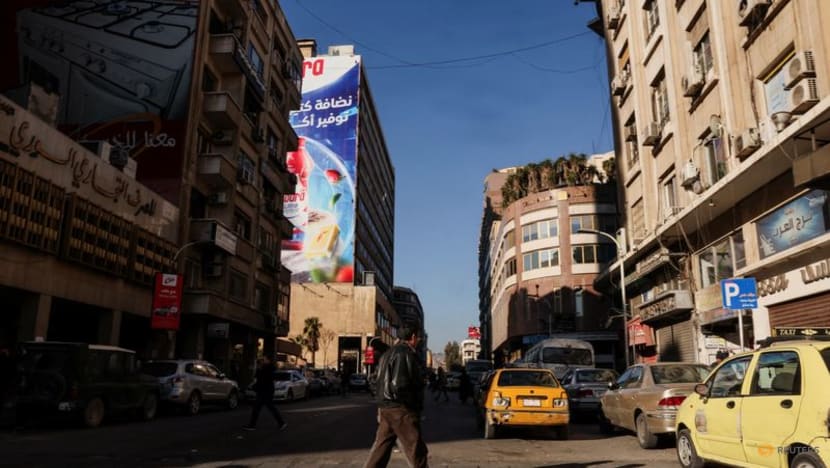
BECOMING A SYRIAN CITIZEN?
The Indonesian HTS members in Syria admitted that they were reluctant to participate in repatriation if they were offered. They are afraid of being arrested and prosecuted upon their return to Indonesia.
“I really miss my family. But if I go home, I will be arrested by Densus for being labelled a terrorist. They will imprison me,” said Ilyas, referring to Densus 88.
Ilyas himself still has parents in Sulawesi and is in frequent contact with them to this day.
Ali, who has three children from his marriage to a Syrian woman, said many HTS members miss their families in Indonesia, but they choose to stay in the country for fear of imprisonment.
In addition, there are opportunities for Indonesians here to become Syrian citizens. “HTS guarantees Syrian citizenship once conditions stabilise,” Ali said.
“I will most likely take it (the offer to become a Syrian citizen).”
This has also been stated by Syrian interim president Sharaa in interviews with several Western media platforms in mid-December 2024.
Sharaa said the foreign fighters were part of the movement that toppled Assad and should be respected. According to Sharaa, they “can integrate because they share the same ideology and values as Syrian society”.
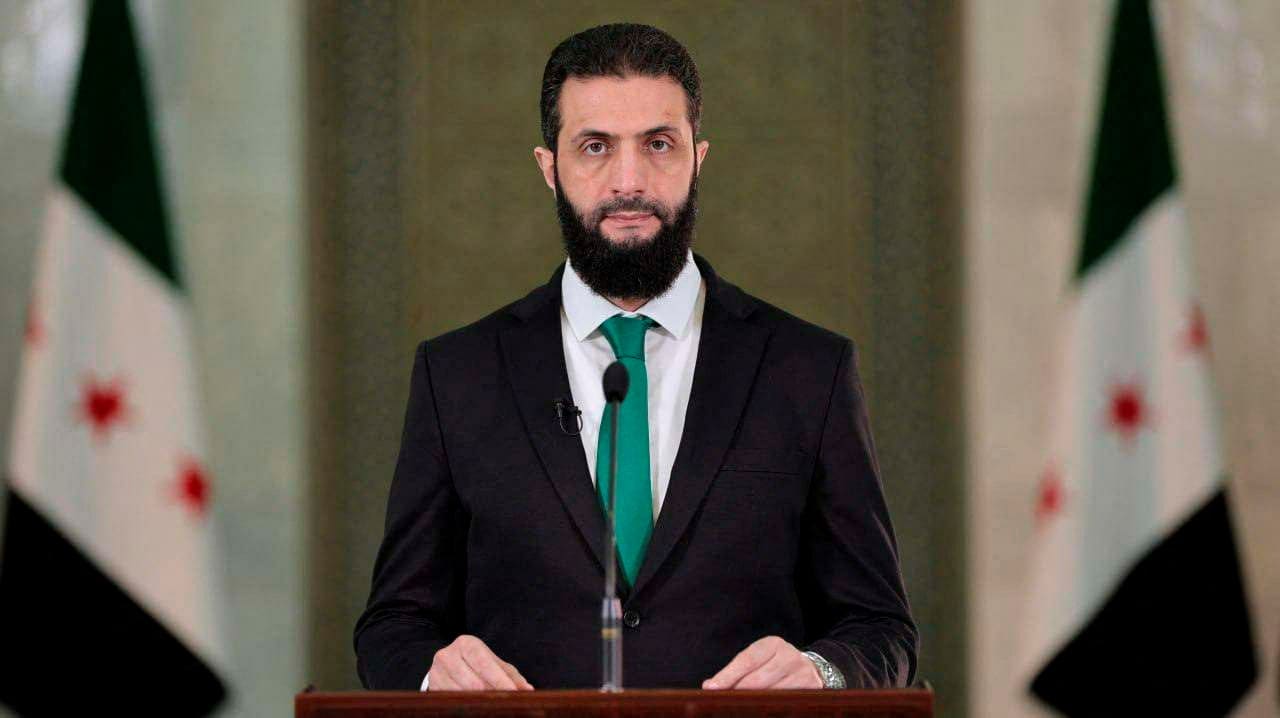
AF himself has already applied for Syrian citizenship. He also admitted that he had conveyed this directly to the Indonesian Embassy in Damascus some time ago.
“I told the Indonesian Embassy, I will change my citizenship. So that BIN (State Intelligence Agency) is not afraid that I will make 'firecrackers' (bombs) when I return home,” AF quipped.
Ilyas said that changing citizenship is the best option for him at the moment because there is protection and security from the Syrian government for himself and his family.
“If, for example, Indonesia provides this security, does not mess around (imprison me), I want to return to Indonesia,” he said.
Indonesian Foreign Ministry spokesman Rolliansyah said the government “has not received any information” regarding the offer of citizenship for foreign fighter Indonesians in Syria.
CNA has tried to confirm with the Syrian government through its embassy in Jakarta but has yet to receive an answer.
International relations expert Rezasyah said that changing citizenship would be a “one-way ticket” for Indonesian HTS members in Syria. They, he said, would find it difficult to obtain visas to travel to Indonesia to visit their families.
“If they want to meet their families, they have to go to a third country, for example in Saudi during (Islamic pilgrimage) Umrah,” Rezasyah said.
AF said: “There is no intention whatsoever to cause harm in Indonesia because I was born there, my parents are there”.
However, he admitted that he had no problem if he could no longer return to Indonesia.
“Because I did not go to Syria to return home, but to stay forever. I am married here and have children.”



















